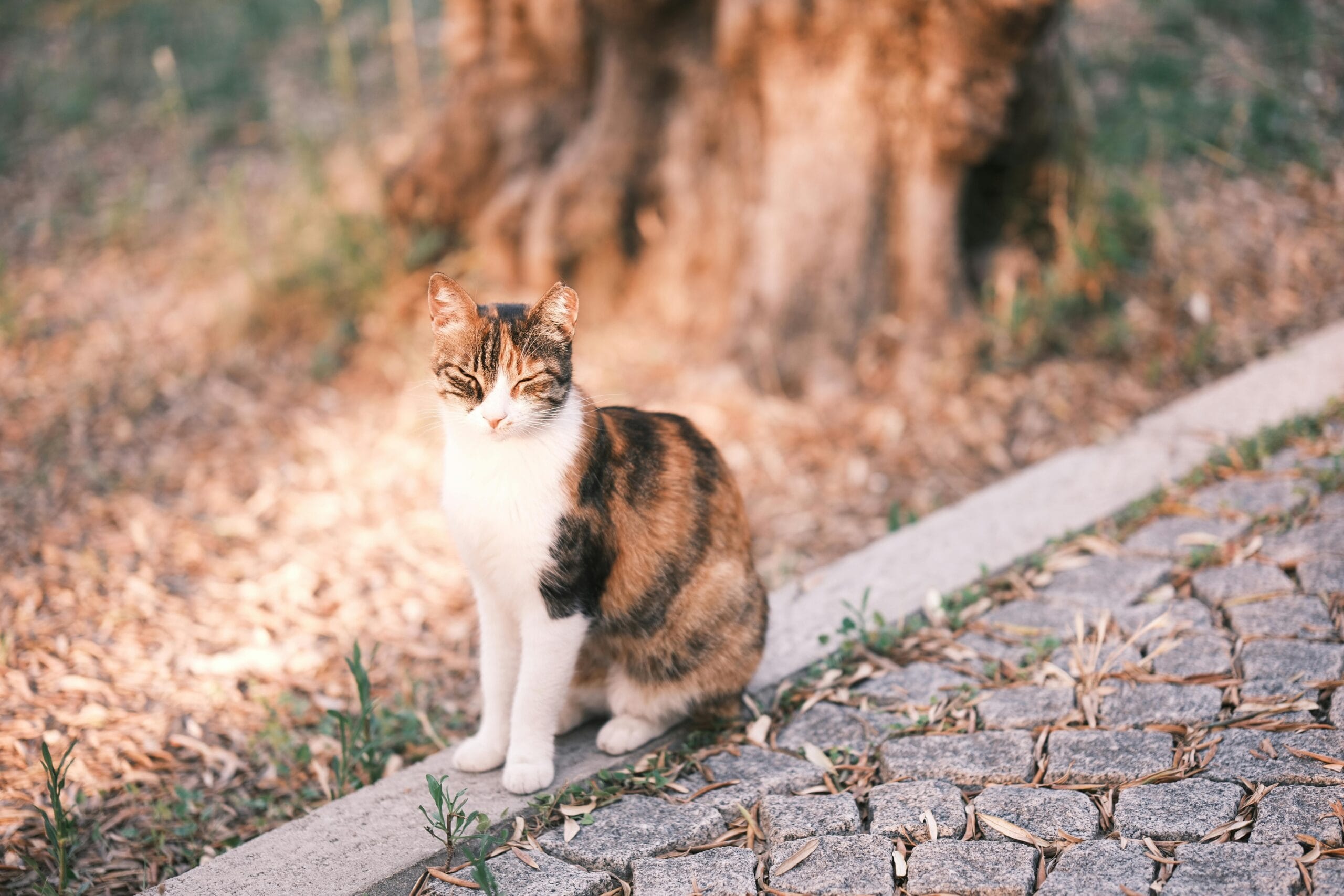How To Stop A Kitten From Biting? Learn how to curb kitten biting & stop kitten bites! Gentle training tips & tricks for happy, bite-free interactions. Get expert advice now!
How To Stop a Kitten From Biting: A Comprehensive Guide
Bringing a new kitten into your home is an exciting time, filled with playful antics and adorable purrs. However, those tiny claws and needle-sharp teeth can quickly become a source of frustration, especially when your furry friend’s playful nips escalate into painful bites. If you’re struggling with a kitten that bites, you’re not alone. This comprehensive guide will provide you with practical strategies to address kitten biting and help you understand why your kitten behaves this way. Learning how to stop a kitten from biting is crucial for both your well-being and your kitten’s development.
Understanding Why Kittens Bite
Before we delve into solutions for stop kitten bites, it’s essential to understand the root cause of the problem. Kittens bite for a variety of reasons, and addressing the underlying issue is key to successful training. Some common reasons include:
- Playful Aggression: Kittens, especially young ones, often bite during playtime. They lack the coordination to control their bite force and may not realize they are hurting you. This is the most common cause of kitten biting.
- Fear or Anxiety: A frightened or anxious kitten may bite as a defensive mechanism. If your kitten feels threatened or cornered, biting becomes a way to protect itself.
- Teething: Just like human babies, kittens experience teething, and biting can be a way to relieve discomfort.
- Overstimulation: When a kitten gets overexcited during play, it can lead to aggressive biting. Knowing when your kitten is reaching its limit is crucial.
- Lack of Socialization: Kittens that haven’t been properly socialized may be more prone to biting due to a lack of understanding of appropriate interaction.
Effective Strategies to Stop Kitten Biting
Now that we’ve explored the “whys,” let’s tackle the “hows.” Successfully managing how to stop a kitten from biting requires patience, consistency, and a proactive approach. Here are some effective techniques:
1. Managing Playtime:
Play is crucial for a kitten’s development, but it’s important to direct that energy in a safe way. Avoid using your hands or feet as toys. Instead, opt for interactive toys like wand toys, toy mice, or balls. When your kitten starts to get too rough, immediately stop the play session. This helps them learn to associate biting with the end of fun.
2. Positive Reinforcement Training:
Reward your kitten with treats or praise whenever it exhibits good behavior, such as gentle play or avoiding biting. Positive reinforcement is a powerful tool for how to train a kitten not to bite. This method focuses on rewarding desired behaviors rather than punishing unwanted ones.
3. Redirecting Behavior:
When your kitten starts to bite, gently redirect its attention to an appropriate toy. This helps them associate the desire to bite with a suitable outlet. This technique is especially useful for addressing kitten biting stemming from playful aggression.
4. The “Ow!” Technique:
When your kitten bites, let out a high-pitched “Ow!” or “Yelp!” This mimics the sound of a kitten in pain, often causing them to pause and reconsider their actions. Avoid shouting or hitting, as it can scare or confuse your kitten. This simple yet effective strategy addresses how to get kittens to stop biting gently.
5. Time-Outs:
If your kitten bites repeatedly, gently place it in a separate, quiet room for a short time-out (5-10 minutes). This isn’t punishment but a way to give your kitten a chance to calm down. This strategy is helpful in cases of overstimulation or anxiety.
6. Provide Plenty of Enrichment:
A bored kitten is more likely to bite. Ensure your kitten has plenty of toys, scratching posts, and climbing opportunities to keep it stimulated and entertained. A well-stimulated kitten is less prone to biting out of boredom. This contributes significantly to knowing how to get a kitten to stop biting.
7. Professional Help:
If your kitten’s biting persists despite your best efforts, consider consulting a veterinarian or a certified cat behaviorist. They can help identify underlying medical or behavioral issues that may be contributing to the biting. Sometimes, underlying health issues can make a kitten more irritable, influencing their bite tendencies.
Understanding the Stages of Kitten Development:
Knowing when a kitten’s behaviors are simply part of their growth and when they need intervention is key. Understanding the developmental stages can help explain some aggressive behaviors. For more information on when certain behaviors are more common, and the stages of kitten development, check out our informative article on when kittens become cats.
Addressing Specific Biting Scenarios:
Sometimes, biting is related to other behaviors. For example, if your cat is licking you then biting you, that might be a sign of something else altogether. If this is happening frequently, consider taking a look at our article on why cats lick then bite.
Further Resources on Kitten Biting:
For more in-depth information on managing kitten biting, we recommend exploring our other articles: How to Get a Kitten to Stop Biting, How to Train a Kitten Not to Bite, and How to Get Kittens to Stop Biting.
For a more scientific understanding of feline aggression and behavior modification techniques, we recommend consulting resources such as the ASPCA’s Cat Behavior Guide. This guide provides in-depth information about common feline behavioral issues and solutions for managing them.
The Cornell Feline Health Center also offers valuable information on feline health and behavior, including resources on addressing aggression.
Conclusion: Patience and Consistency are Key
Successfully addressing how to stop a kitten from biting requires patience, consistency, and a compassionate approach. Remember, your kitten isn’t trying to be malicious; it’s simply learning how to interact with its environment. By implementing the strategies outlined in this guide and remaining consistent, you can successfully redirect your kitten’s biting behavior and foster a stronger, more loving bond. Remember to celebrate small victories and stay positive throughout the process. Your efforts will be rewarded with a happy, well-adjusted kitten and a more peaceful home.
Share Your Experience!
Have you successfully tackled kitten biting? Share your tips and experiences in the comments below! Let’s help each other create a harmonious home for our feline friends. What strategies worked best for you in stopping those playful (or not-so-playful) bites? Use the keywords ‘how to stop a kitten from biting’ or ‘stop kitten bites’ or ‘kitten biting’ in your comments to help others searching for the same solutions!

Frequently Asked Questions: How To Stop A Kitten From Biting
- 1. Why is my kitten biting me so much?
- Kittens bite due to teething, exploring their environment through their mouths, or as a form of play. Learning how to stop a kitten from biting is crucial for their development and your sanity.
- 2. My kitten bites hard, what should I do?
- A hard bite is concerning. Immediately say “ouch!” sharply and withdraw your hand. Ignoring the behavior won’t work. This addresses kitten biting and teaches boundaries. Consistent training is key to stopping hard bites.
- 3. How can I teach my kitten not to bite during playtime?
- Supervise playtime and redirect biting with appropriate toys. When the kitten bites your hand, substitute a toy. This helps solve how to stop a kitten from biting during playful interactions.
- 4. My kitten bites when I’m petting it. What’s wrong?
- Some kittens overstimulate and bite when petted. Learn your kitten’s limits. Stop petting when you see signs of stress (like flattened ears or a tense body). This helps prevent overstimulation and addresses stop kitten bites.
- 5. Is it normal for kittens to bite?
- Yes, especially young kittens. It’s part of their development, but it’s important to teach them gentle behavior. Knowing how to stop a kitten from biting is essential for a positive owner-kitten relationship.
- 6. What if yelling or punishment doesn’t work to stop my kitten from biting?
- Avoid punishment; it can create fear and anxiety. Positive reinforcement is more effective. Reward gentle behavior. Learning how to stop a kitten from biting requires patience and positive training methods.
- 7. My kitten bites my other pets. How can I stop this?
- Supervise interactions carefully. Redirect playful aggression with toys. Separate them if biting becomes excessive. This addresses kitten biting among multiple pets.
- 8. At what age should kitten biting stop?
- Most kittens learn to inhibit their bites by around 6 months. However, consistent training is vital throughout their life. Addressing stop kitten bites consistently is crucial for long-term results.
- 9. How long does it take to stop kitten biting behavior?
- Consistency is key. It can take several weeks or even months to fully stop kitten biting, depending on the kitten’s personality and age.
- 10. Should I take my kitten to the vet if the biting persists?
- If the biting is excessive, aggressive, or accompanied by other behavioral changes, consult a vet to rule out any underlying medical conditions. Sometimes, understanding the root cause is essential to address how to stop a kitten from biting effectively.

How to Stop a Kitten From Biting
Kitten biting is a common problem, often stemming from teething, play, or a lack of understanding of appropriate behavior. It’s crucial to address this early to prevent it from becoming a larger issue. Understanding the reasons behind the biting is the first step to solving the problem. For example, you might be wondering, “Why does my cat lick me then bite me?” This seemingly contradictory behavior is actually quite common and can be addressed with patience and training. Learning the nuances of feline behavior, such as understanding when kittens become cats, also helps in addressing age-appropriate biting behavior.
One of the most effective methods is to understand what triggers the biting. Is your kitten teething? Are they overstimulated during play? Are they simply lacking in appropriate toys? Providing plenty of chew toys can help alleviate teething discomfort. If biting occurs during play, interrupt the play session immediately when the kitten bites, instead of reacting with punishment which can be counterproductive. This will teach your kitten to associate biting with the end of playtime. You can find more information on this approach at how to train a kitten not to bite.
Positive reinforcement is key. Reward your kitten with treats and praise when they exhibit gentle behavior. This helps them associate good behavior with positive outcomes. Avoid yelling or punishing your kitten when they bite; this can be quite frightening and create a negative association. Instead, focus on rewarding the behavior you want to see. If your kitten continues to be a persistent biter, you may find it beneficial to consult a veterinarian or a professional cat trainer. They can provide personalized advice and address any underlying health issues that might be contributing to the behavior. For more information on general solutions, refer to how to get a kitten to stop biting.
It’s important to remember that kittens have very sharp teeth! Even gentle play can sometimes result in scratches or bites, so supervision is crucial, especially with children. If your kitten is excessively aggressive, it’s crucial to address the issue promptly, potentially seeking professional help. It is also important to remember that early intervention is vital. The sooner you address the behavior, the easier it is to change it. You can also check out how to get kittens to stop biting for further guidance.
Remember patience is a virtue! It takes time and consistency to modify a kitten’s behavior. Don’t give up! With consistent training and positive reinforcement, you can help your kitten learn to play gently. If you’re concerned about your kitten’s biting behavior and are struggling to address it, don’t hesitate to seek advice. There are many helpful resources available online, including how to get kittens to stop biting and others. Understanding your kitten’s developmental stages, such as knowing when do kittens become cats, can provide valuable context for their behavior and assist in your training efforts.

How To Stop A Kitten From Biting, Kitten Biting, Stop Kitten Bites